Insights from the Writing to Right the World Summit
Warm yourself at the fire and listen to the insights and inspiration offered by five brilliant Worldwrights: Maria Sirois, Nina Simons, Manda Scott, Cynthia Jurs and Osprey Orielle Lake.
Dear friends,
Last week I had the honor and joy of convening an outstanding group of worldwrights in a conversation streamed live on the Humanity Rising platform hosted by Ubiquity University founder Jim Garrison.
Over the course of five days, I talked with positive psychologist Maria Sirois, Bioneers co-founder Nina Simons, Thrutopian author Manda Scott, Gaia Mandala dharma teacher Cynthia Jurs, and Women’s Earth and Climate Action Network founder Osprey Orielle Lake, all of whom have written powerful books that share their activist paths as well as orienting us in how to best be of service to the flourishing of the Gaian web of life.
You can find links to the recordings of each of these conversations here; my introduction of the day’s guest begins at about 14 minutes in.
I wanted to offer some lightly edited highlights of the week here, as I know for myself, I tend to remember wisdom better when it’s offered in print rather than video.
So settle in and imagine that you are sitting with a group of kindred spirits around a northern hemisphere campfire in this darkening time of the year, listening as five inspiring, influential women, each at the top of her game, shares insights and stories aimed at helping us cope with difficult times, and navigate more surely towards the thriving future we yearn for.
As you listen, your heart swells with glad recognition: these are the words you’ve been waiting for. These are the worldwrights, writing to right the world, who are working actively to rebalance the human relationship with the Earth, setting us on a life-affirming path that will leave a positive legacy for those who come after us.
From brokenness comes regeneration
Each worldwright emphasized the importance of confronting the brokenness of the world we live in today.
“Growth can only happen when we acknowledge that which has been broken or fractured,” said Maria Sirois. “There can be no resilience, no increasing sustained vitality, no capacity to right the world in the ways that are organic, until we acknowledge the broken parts.”
The brokenness is evident out in the world, and inside each of as well; there is no separation between human and nature, between psyche and physical reality.
“We literally come from the stars, not just physically, but also metaphysically,” said climate activist Osprey Orielle Lake. “We come from the elements of the stars and when we sit with the trees and the animals, they're literally our relatives, our ancestors. When we can tune into our relationship at that level, there's so much to learn and to be communicated. It's one of the reasons we humans are out of sync and out of alignment, because we haven't been listening to our relatives and building those relationships.”
When we spoke, Osprey had just come back from COP29 in Azerbaijan and another major international biodiversity meeting in South America. She emphasized that “whenever I’m in these policy spaces or the climate-related projects that we're doing, I'm listening to the relatives and bringing them into these spaces with me. It's important that we bring our full selves to every discourse as much as we can. It’s part of the healing process, but it also invites new ways of thinking. I can be lobbying in Washington, DC and at the same time I’m out in the wild. I can hold both realities at once, if I allow myself to experience time as nonlinear.”
Staying open to the Light
At the same time as we stay open to the tragedies and grief of our time, it’s also important to nourish our spirits with awareness of the beauty, light and positivity that also continues to flourish on our beleaguered planet.
“We are magnificent as human beings in our ability to navigate both brokenness and wholeness,” said Maria. “It behooves us to create moments in which we are present to that which nourishes us. I've come to think of beauty, goodness and excellence as nutritious and nourishing—they literally feed every part of our being.”
Cynthia Jurs agreed that we need to avoid falling into the downward whirlpool of negativity. “It's important to be aware of what’s happening in the world, but also to turn our awareness to what we want to see, to the beauty. The joy and the transformation that is within each of us is our offering towards restoring balance in the world.”
Finding your tribe
Creating spaces where we can come together and nourish each other is key to creating a critical mass of positive change. Nina Simons has been co-hosting the annual Bioneers conference with her husband Kenny Ausubel for 35 years, and they are deliberate in fostering an atmosphere of joyous potential, both at the conference and through their media and Bioneers Learning courses all year long.
“Despair and fear and isolation is not how I want to live this precious life,” Nina said. “Indigenous people say that the Creator put us here to celebrate life, and I think that that's true. Without being at all glib, what Bioneers attempts to do is to educate about the challenges we face and provide a space where people who are experts in their fields can share about solutions and what you can do to make things better.”
Joyful curiosity and imagination are key catalysts of change
Thrutopian author Manda Scott has been leading the charge on tapping into the power of our imaginations to orient us towards making the changes that will “right the world.” She chose to write a thrutopia for her most recent novel, Any Human Power—thrutopia being a term coined by philosopher Rupert Read, referring to a fictional narrative that models a way through the current polycrises towards a brighter future.
“Every person I know who's written a dystopia has thought that they were going to change the world,” said Manda, “and it doesn't work that way. It's not how human neurophysiology works. You can't frighten people into changing behavior, particularly if we don't give them options of how to do something differently. We need to show people that there are options and that the world they lead to is okay.”
Manda titled her novel Any Human Power after a potent quote from the great speculative fiction writer Ursula K. LeGuin, who said: “Books aren’t just commodities; the profit motive is often in conflict with the aims of art. We live in capitalism, its power seems inescapable — but then, so did the divine right of kings. Any human power can be resisted and changed by human beings. Resistance and change often begin in art. Very often in our art, the art of words.”
Manda’s novel shows how radical change can happen with surprising speed, if imagination, technology and passion come together.
Sacred Activism begins with kindness and generosity
The sacred dimension of art and activism came up often through the week of Writing to Right the World conversations. Jim Garrison named “sacred reciprocity” as the ideal human-Gaia relationship, and it’s important to recognize how incredibly generous and abundant Gaia and the cosmos are in the way they nourish life here on Earth. So as worldwrights, how can we return this blessing and get into a relationship of sacred reciprocity with the web of Life?
Maria drew on the science of positive psychology, which has shown that “when we are kind or when we witness kindness, we tend to be more generous in return. Generosity is the quintessential life sustaining value,” Maria said. “When we are generous across species, across races, across identity, across geography, we sustain life.” When times are hard, “we have to triple down on generosity and being kind is the doorway. It's the gateway drug, if you will, to generosity.”
This is akin to practicing “random acts of kindness,” which seem to be contagious for human beings, just like smiles and laughter. Shifting Margaret Meade’s famous quote a little, we might say, “Never doubt that shared kindness and joy can change hearts and minds; indeed, it's the only thing that ever has.”
Transforming the future calls for collaborative leadership
An idea that was repeated throughout the week was Thich Nhat Hanh’s prophecy that “the next Buddha will be a sangha,” along with Fritjof Capra’s famous observation: “Life's much less a competitive struggle for survival than a triumph of cooperation and creativity.”
“The solitary hero is a thing of the past,” Nina Simons said. “It’s not working. The more we can gather in community and work on things together, that’s where our power lies.”
Nina’s book Nature, Culture & the Sacred: A Woman Listens for Leadership is a manual for how to cultivate this new form of collaborative leadership, which she calls “full-spectrum leadership.”
“I learned from my early spiritual training that the holistic human system is comprised of body, heart, mind and spirit,” Nina said. “Full spectrum leadership integrates those four centers in determining how we show up and what we do and how we lead, as well as balancing the yin and the yang within us all, so that we are practicing being receptive and listening at least as much as we're speaking, if not more. I think part of the key to cultivating collaboration and good relationship is deep listening, where we give our full attention to each other and really take in what someone else is saying. It's not that common in our society, but when you practice it, good things happen.
“So for me, full spectrum leadership happens both the on the vertical plane—the body, heart, mind and spirit—and on the lateral plane, integrating the yin and the yang, so that at any given time we have all of our capacities available to us to draw from.”
Rebalancing the Masculine and Feminine
All five worldwrights talked about how important it is to restore the balance of Masculine (yang) and Feminine (yin) energies within the human psyche and in our relationships with each other and Gaia.
Sometimes that means slowing down, to listen more deeply to what wants to emerge through us. “Most of us are products of this culture that is all about hyper-productivity, that’s part of the masculine/feminine imbalance,” Nina said. “But the truth is that some of our greatest creativity and inspiration comes through when we're in receptive mode, when we are rested. So the question becomes, how do we make time and space for ourselves to rest and receive that in a culture that's saying Go, go, go, do, do, do, do. I grapple with that big time myself. I think the wisest thing we can do is to care for our inner worlds by trying to find a place of equanimity.”
Offering respect to the yin/feminine side of our psyches is a way of honoring the feminine principle in our Mother Gaia.
“What I most deeply want to serve is the re-emergent Feminine in the world and in us all,” Nina said. “And Mother Earth is the most sacred and divine form of that. When I combine my sense of the sacred with my sense of what I want to defend and protect, it gives a whole different power boost to what I care about doing.”
Summoned by the Earth
This is exactly the journey Cynthia Jurs has been on with her Earth Treasure Vases and the Gaia Mandala that they have created, with some 90 Vases planted in key acupuncture points around the globe. As she describes in her book, Summoned by the Earth, Cynthia was given this practice when, as a young woman in her 20s, she visited an ancient lama in a cave in Nepal and asked that potent worldwright question: what can I do to make the world better?
The lama’s answer seemed cryptic to Cynthia—how would planting the small pottery Earth Treasure Vases make the world better? And yet as she opened herself to becoming a channel for this ancient Buddhist practice, she found myriad ways in which the vases led the way to both practical and esoteric healing.
“Carrying the treasure vases around the world, I came to really appreciate the connection between the abuse of the earth and the abuse of women, and how they are intimately connected and epidemic,” Cynthia said. “I myself have a history of sexual abuse, which was always very deeply hidden, until I couldn't hide it anymore; I couldn't go on without coming to terms with my own history, and it was very liberating to do so.”
The Earth Treasure Vase practice is another way of rebalancing the sacred Masculine and Feminine, Cynthia said. “You take this little holy vessel, once it's full of prayers and intentions, and dig a hole in the earth and place it in there. It's like inseminating the Earth with a seed—both literally and metaphorically. We invoke both the active and the receptive principles, both of which are needed to bring life forward. In our culture the active principle has dominated so completely that the receptive principle has been really neglected, to put it mildly. Making these offerings is a beautiful way of rebalancing.”
Many of the stories that Cynthia shares in her book are nothing short of miraculous. She encourages us to recognize how “every day, we create the conditions for miracles to happen, for the sacred to enter our daily life and then we see things start to unfold in a in a way that is conducive to the changes that are needed to rebalance our world.”
Rituals to birth an initiation culture
All five worldwrights talked about the importance of rituals and practices that help us come into alignment with the “sacred reciprocity” of Gaia.
For Manda, a practicing shaman, this has to do with shifting from what Francis Weller called a trauma culture to an initiation culture.
In an initiation culture, Manda said, “I can become what it is that I am here to do as a self-conscious node in the greater web of life, and I'm celebrated for that. Initiation cultures exist in a serotonin mesh of respect and pride.”
Shifting from the fearful, deeply wounded trauma culture to a collective initiative culture in which we feel loved, valued and confident, is one of the central challenges of our time. Manda expressed this focal point of spiritual healing work very beautifully: “How do I get to the point where I am so completely in love with the process of being alive that every cell in my body is shimmering with aliveness, with the love of being alive, so that I know my connection to the web of life, and I can ask, ‘What do you want me to do? What do you want of me?’ I can respond in real time, because this is an emergent process, and all I need to do is be the best that I can be and bring to the world the energies that the world needs, which are, generally speaking, gratitude, compassion and joyful curiosity.”
Manda asked this question herself and received the answer that she should go sit out on a hillside in the sunset. Without understanding why, she followed the guidance and received the visions that provided the impetus and deep structure of her Thrutopian novel.
As with Cynthia and her treasure vases, it’s often best to simply be receptive to spiritual promptings, and follow them with “joyful curiosity,” without letting our monkey minds demand rationales and reasons.
Getting into the Gaian flow
Manda quoted social theorist Raymond Williams, who said: “To be truly radical is to make hope possible rather than despair convincing.”
“I'm not trying to make despair convincing,” Manda said. “I'm trying to point out that the existing system is broken, is falling apart, is disintegrating in front of us, and we don't know what could emerge, but we know that gratitude, compassion, and joyful curiosity are inner qualities that will allow something generative and healing to emerge.
“Those three qualities give me a sense of grounding and rooting down into the Earth, connecting the three hearts—the heart/mind of the Universe, through my heart to the heart of the Earth—giving me that sense that I am here to join the earth to the sky and the sky to the earth. My purpose in being here is to be a lens for the raw compassion of the Universe, to ask what do you want of me and to hear and embody the answer without projecting, without my ego and all my traumas getting in the way, and then to respond to the answer. I don't need to ask why. It’s important to learn that we don’t need to know the answers to follow the guidance of the Universe.”
When we are in alignment with the positive flow of the Universe and the web of life, we can be moved along in great surges of emergence.
“When we're in harmony with the web of life and with all our relations and ourselves, things move in a way that is effortless and graceful,” Cynthia said, “whereas when we try too hard, we get in our own way. We make problems for ourselves. We have to keep asking, how do I feed the spirit of what I want to see in the world? How do I feed myself in such a way that I don't keep making the same mistakes over and over? If we can stop making the same mistakes over and over and come into a different way of operating, the world will open up in a new way for us. Let’s not lose sight of the fact that we're on the cusp of something new. Even when things are terrible, really falling apart, the falling apart is necessary for something new to emerge.”
Catalyzing a necessary shift in consciousness
As Manda said, invoking the pathbreaking work of Bill Plotkin, “we need to grow up in a hurry, and we need to make a shift in consciousness. Evolution happens under moments of intense pressure,” she observed. And we are certainly in a moment of intense pressure now.
Osprey described her recent visit to a museum in Azerbaijan, where the COP29 was being held, that was built on the site of an ancient temple dedicated to the element of Fire. “One of the things that's really amazing about Azerbaijan,” Osprey said, “is that it has enormous quantities of fossil fuels coming out of the ground—there are mountains that naturally have fire coming out of them. At this fire temple you could see the layers of our relationship with fire over the centuries, from the Zoroastrian peoples to Hindu pilgrims and on into the present. I was very struck by how the museum shows you beautiful fire deities from different periods of time, and then you go to the final room, and on equal stature and with equal pageantry, you see a room that uplifts images of oil wells and the fossil fuel industry. It struck me so deeply how we've gone from a recognition of the sacredness of fire to a time when we are worshipping these modern deities of wealth and greed and extraction and exploitation. For me, it told the whole story of what has happened in our time.”
And yet, there is always hope that the fire itself can initiate the intense pressure that is needed now for the evolutionary change of consciousness.
“I believe in the nobility of the human spirit,” Nina Simons said. “I believe that if we can engage with each other in truly compassionate and deep listening ways, we can reach across our differences to become a culture that values difference instead of being frightened by it. We need to recognize that diversity is nature's failsafe against extinction, and that therefore it behooves us to become really great allies and to learn from everyone what we don't know.”
The Earth is our Teacher
The Earth herself is our great Teacher, Cynthia said. “I began to see that all the Earth systems and the web of life are such an incredible embodiment of the Buddha, the Dharma and the Sangha, the teacher, the teachings and the community. It’s all right there, waiting for you to connect in your next breath. You don't have to look outside of yourself for some great teacher or guru; every time we go outside and put our back against a tree or walk along the shore, we come back to our connection with the Earth, to our own true nature. And this is something that is available to all of us. You don't have to be a Buddhist, or a Christian or a Muslim or a Jew. We can all recognize our connection to Gaia and be guided and restored by that.”
In these troubled times, each of us has the potential to become a beacon of positivity for others. “I think we really need to tend to our inner world so that we can beam out love and compassion and receptivity and care,” Nina said. “We need to connect with our neighbors and get more grounded in our local ecosystem. Find out where your food's coming from. Be aware of your water table and your watershed. I think we're going to be able to make change on the local level first, and then there will be local communities that knit together and create bigger changes. It’s important to find your people so that you can feel supported in this and not try to do it alone, and it’s also important to give yourself permission to express what you're feeling, the way Joanna Macy led us to do with her Truth Mandala ritual. Part of our societal illness is that we don't express our feelings, especially grief and fear and anger. I've often said that if we had safe public spaces for grief rituals, we could reduce the amount of violence in the world very quickly.”
Calling on the Ancestors
It's also important to recognize that we are not alone in our struggles; we have sources of guidance and aid constantly coming to us from the nonphysical, spiritual realms.
“We're all indigenous to Mother Earth,” Nina affirmed. “And if we go back far enough, we had ancestors who knew how to live right on this planet.”
But we all have a lot of trauma coming down through our ancestries, too. “We need to follow our family tree and recognize all the things there that are both painful and beautiful,” Osprey said. “We need to be responsible for our actions and our ancestors’ actions, there are reparations that need to be made, but we can also try to get back into a time when our own ancestors were close to the land, indigenous to the places they were living in. We all come from pre-colonized, pre-patriarchal societies that were not perfect, but were certainly egalitarian, and connected us to the land. Reconnecting with those origins is key, because it helps us connect to strength from ancestors that we all hold.”
Osprey, who works extensively with indigenous people around the world through her Women’s Earth and Climate Action Network, titled her recent book The Story is in the Bones, and she explained this concept beautifully in our conversation.
Bones are often associated with death, she said, but “actually your bones are where your blood is made every day; it's a place of world making. The story in our bones is also a story of world making right now, because the world we're in is collapsing. I think we need to accept the fact that falling apart is okay. You know, I began my activist work with the idea that we had to fix the world. Now I think we need to help the world fall apart. I don't mean in ways that harm frontline communities or those who are already experienced huge injustice. Many indigenous peoples will say that the world has already ended—since colonization, we've already lived through the end of the world. This is not new. In my book, I wanted to emphasize how while one world is ending and burning, another world is being made, and that story is in our bones—both physically with the blood making, but also in how the stories of our origins are written in our DNA, in our blood memory.
“The stories in our bones help us reflect back on how our story developed from the far past to the present so that I can stand here in my full self, with all my lineage behind me—not just the human ancestors, but all our ancestors from the more-than-human world. Our origin stories help us remember that we're part of this Earth lineage, part of this great unfolding story in nonlinear time, and that story is literally in our bones—the minerals and the elements of our body come from the stars. This story is inside of us, but it is also happening all around us. So the story in our bones is a way to help us to connect ourselves in an embodied way with this unfolding Earth story that is in crisis, crying out for healing. Once we can name and claim the story in our bones, we can heal it, and we can transform it.”
You can watch all five conversations via the links on this page; my introduction of the speaker begins about 14 minutes into each recording.
As the planet tips towards the Solstice, I invite you to warm yourself by the fire of these powerful worldwrights, and start to build up your courage and inspiration for the New Year ahead.
Yours in the unfolding story,
Jennifer
Cultivate your creativity with one of my writing workshops!
My writing workshops in purposeful memoir are intended as creative recharges, a chance to learn and grow with kindred spirits in nurturing places.
I have several opportunities coming up, locally in the Berkshires, online or internationally!
Explore the garden of your life in a special writing workshop series at the Berkshire Botanical Garden this winter!
Come meet other writer-gardeners and brighten up the winter season with the creative bloom of memoir writing in good company!
We’ll meet on four Wednesday mornings, January 29 - February 19, on the lovely campus of the Berkshire Botanical Garden, for a series of memoir writing workshops taking off on the theme of gardening.
Come write and speak your truth with me in this powerful four-session Bioneers Learning online class!
In this hands-on class hosted by Bioneers Learning, we’ll look deeply at some of the major social and environmental issues of our time and consider how outstanding leaders have used creative expression to make a difference.
Inspired by these models, you’ll work on expressing your own ideas with confidence, clarity, and eloquence, in both writing and public speaking, coming away with a portfolio of writing, a recorded talk, and a circle of kindred spirits cheering you on.
Four Fridays, Feb. 28 - March 21, 2025, live online from 12 - 1:30 pm with recordings available.
Come Riding & Writing in Iceland with me next June!
Riding & Writing in Iceland!
June 2 - 8, 2025
The creative tonic of Iceland has to be experienced to be understood.
Come experience the body, mind and spirit glow that comes from Riding & Writing in good company in a beautiful place, warmly hosted by our friends Gudmar and Christina at Hestaland.
Click here to find out more and see beautiful photos from my past Riding & Writing trips to Iceland.
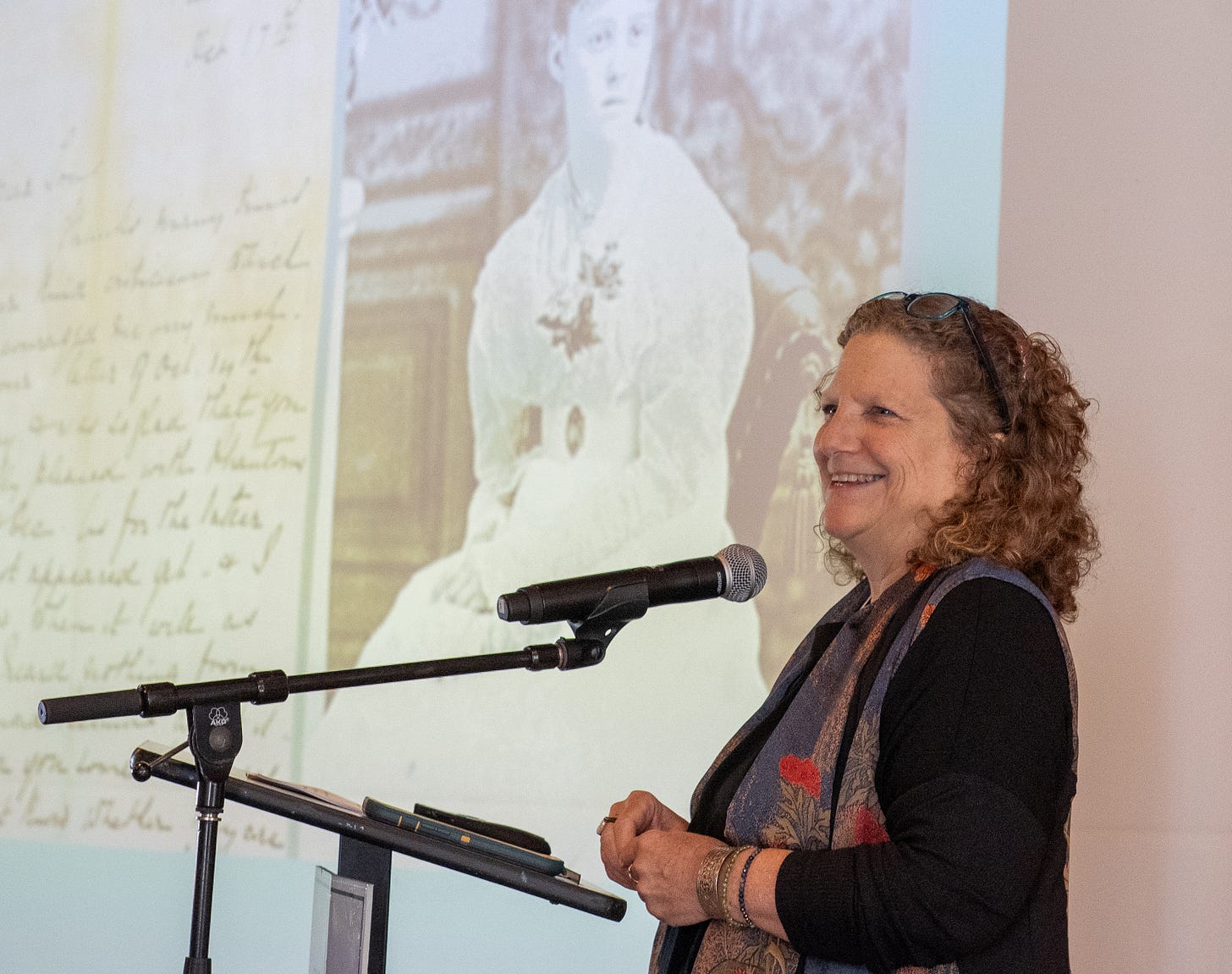
Friends, it’s my pleasure and my passion to support you as we stretch towards living our lives creatively and to the fullest.
The motto of my author consulting business is “Writing to Right the World,” and the motto of my book publishing business, Green Fire Press, is “Books that Make the World Better.”
If these intentions resonate with you and you are working on a book, or have one in mind, don’t hesitate to get in touch!
Supporting creative people bring their work more strongly out into the world is one way I try to make the world better.



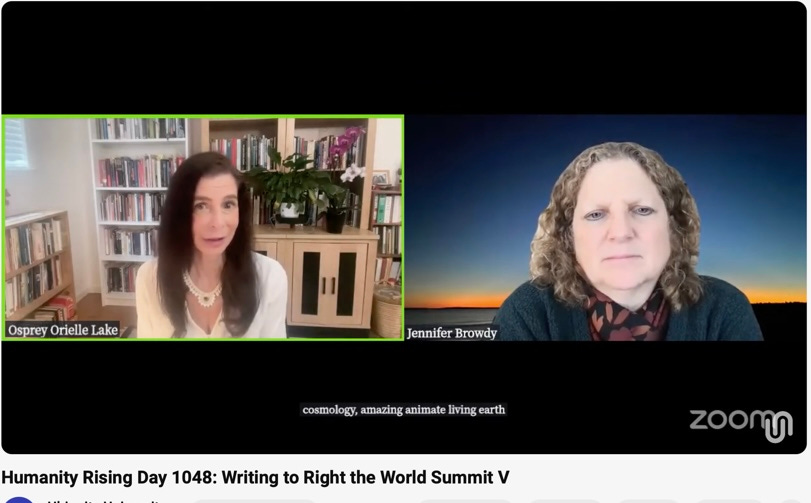
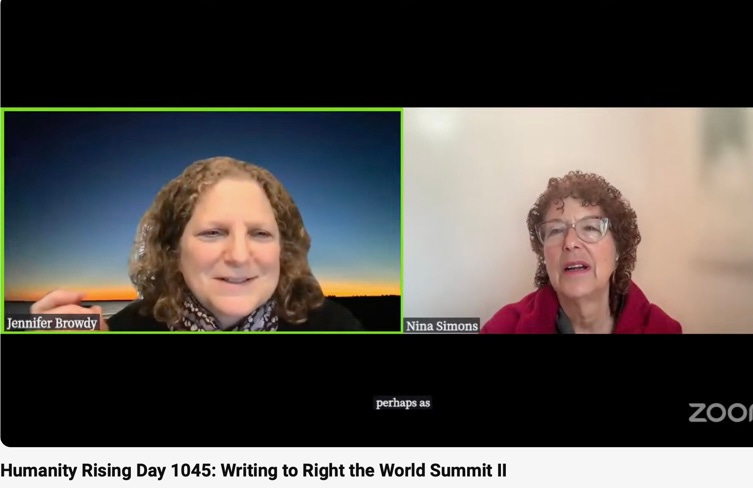
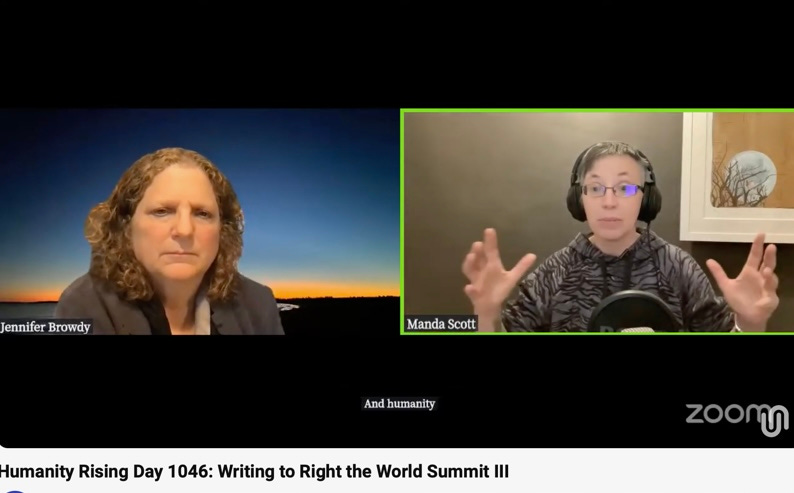







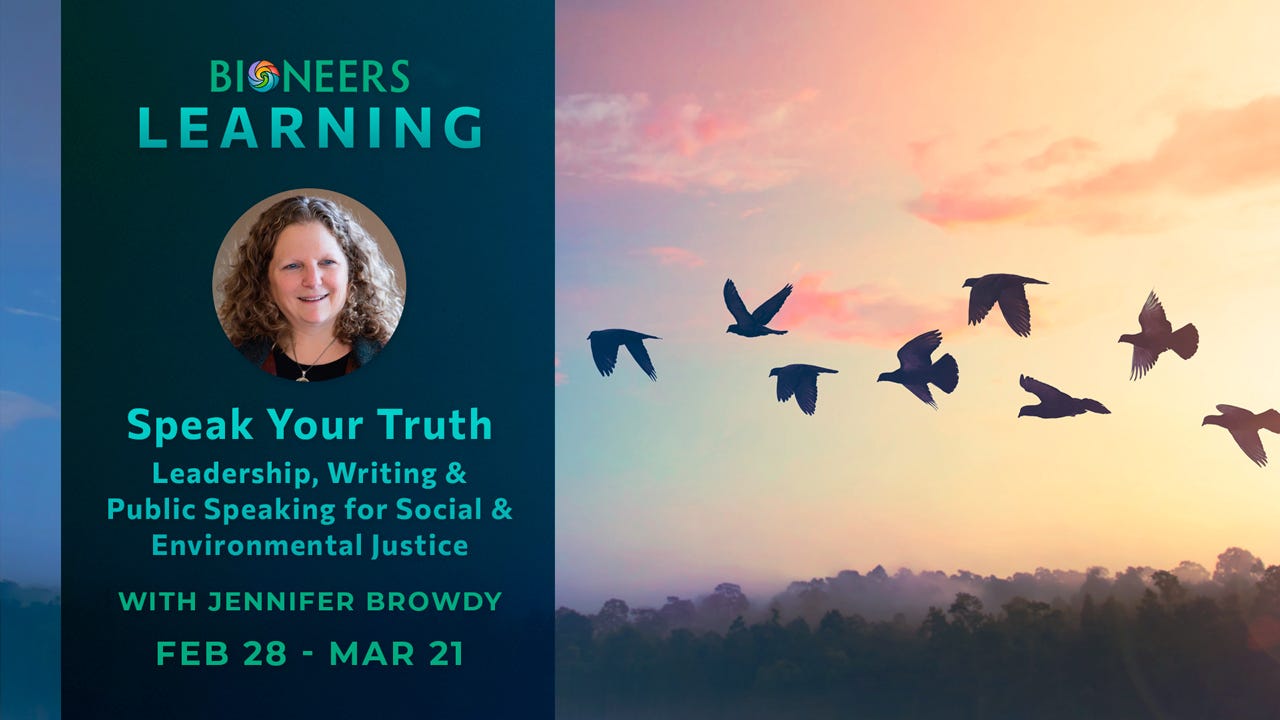
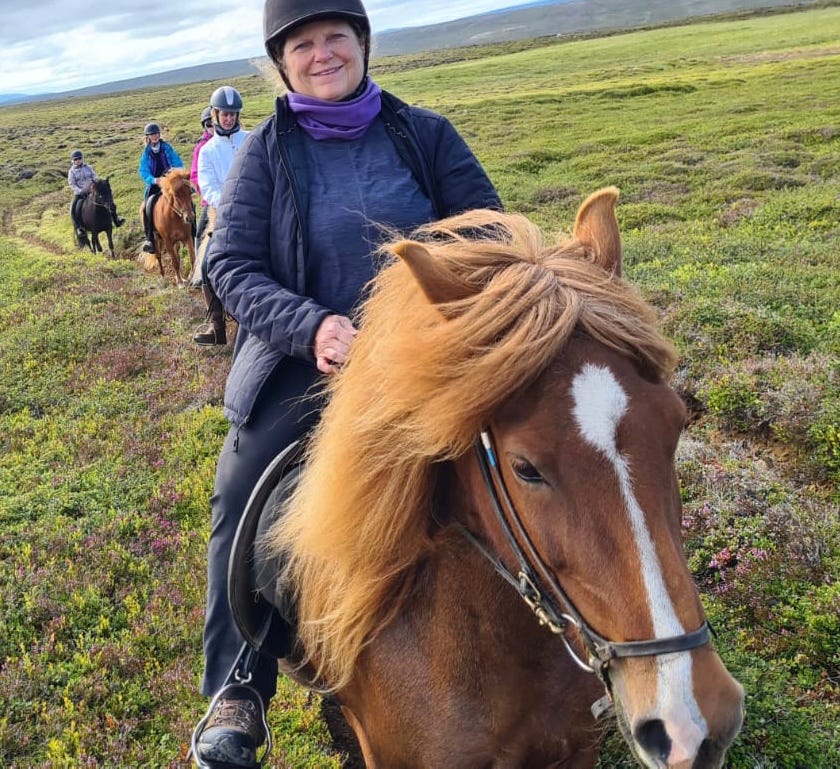
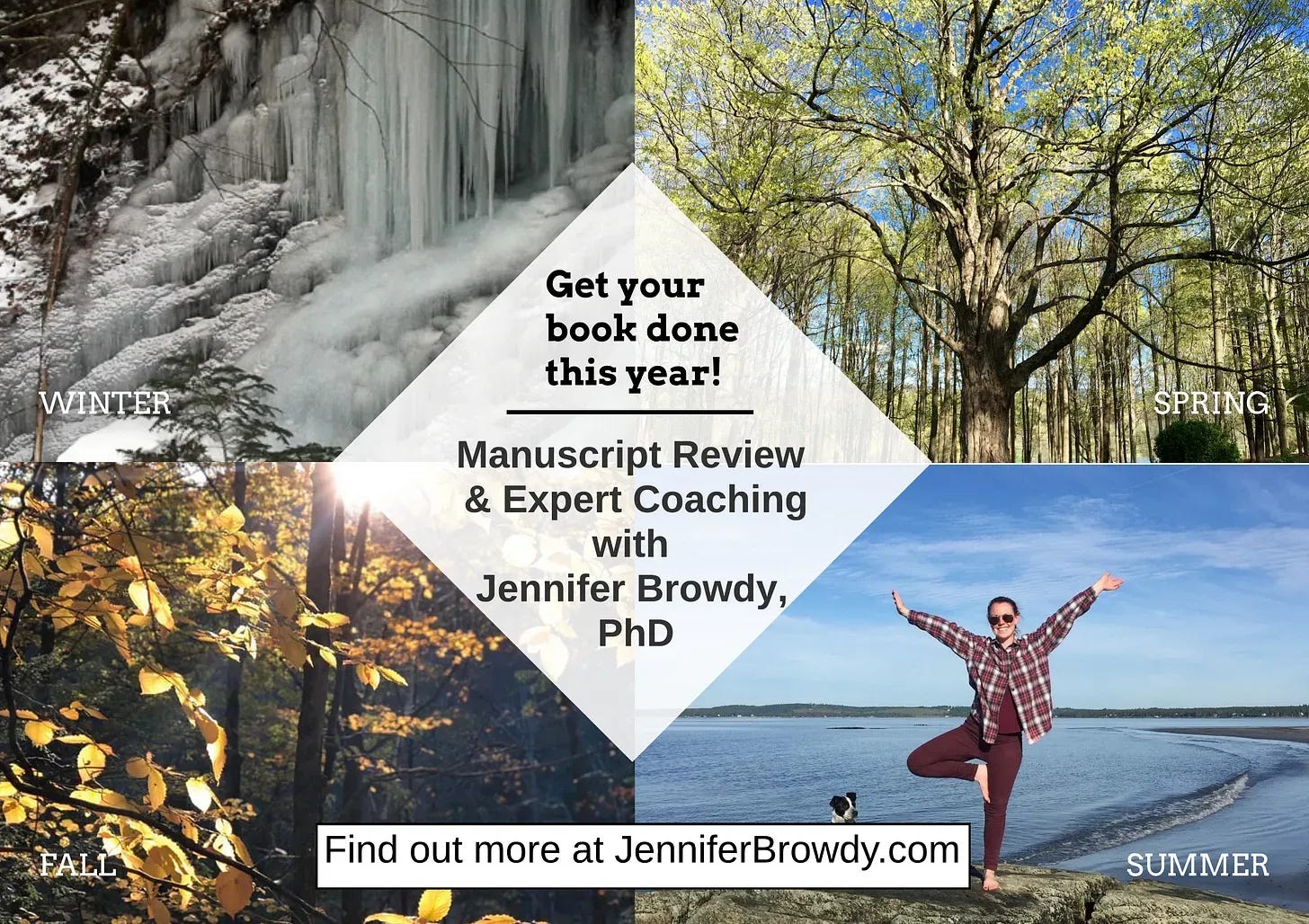
This is a sparkling summit. Thank you for convening these creative geniuses. I am desiring to transform my thesis into a “thrutopia” and glad to learn there is a name for it.